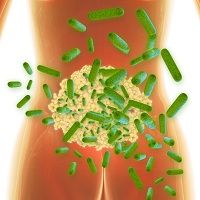Significant Relationship Between Gut Microbiome and Malaria
The gut microbiota could influence the severity of malaria, according to findings of a mice model study published in the Proceedings of the National Academy of Sciences.

The gut microbiota could influence the severity of malaria, according to findings of a mice model study published in the Proceedings of the National Academy of Sciences.
Researchers from the University of Tennessee at Knoxville studied the gut bacteria of mice models of malaria to demonstrate that the gut microbiota of mice influences the pathogenesis of malaria.
They noted that while about one million people die annually from malaria, the disease is poorly understood. Additionally, the disease pathology may range from asymptomatic to severe malaria.
The researchers tested genetically similar mice from different vendors to examine the differences among their gut microbacterial community. They found specific and significant differences in the level of malaria disease severity and mortality after infection with various malaria species.
A cohort of germ free mice received transplants from either malaria “resistant” or “susceptible” mice with high or low parasite burdens, the researchers explained. The study authors were able to observe how the gut microbiota influenced the severity of the mice’s malaria progression.
The resistant mice showed increased abundances of Lactobacillus and Bifidobacterium gut microbiota. When the researchers treated malaria susceptible mice with antibiotics (made from yogurt and strains of the bacteria), there was a decreased parasite burden. And, in alignment with the rest of their findings, the researchers reported consistent differences between parasite burdens in resistant mice, which exhibited an elevated humoral immune response compared to the susceptible mice.
“The research provides a potential new avenue to investigate factors that control the severity of malaria,” study author Steven Wilhelm, PhD explained in a press release. “With one million people dying each year, many of whom are young children, any approach that may save even a few lives is worth following up on. A way to help people who are infected — and especially a simple and cheap way, as much of the infection occurs in the developing world – would be a great service to society.”
The researchers believed their findings indicated the gut microbiota has a more significant role than previously thought in determining malaria severity. They’d like to explore microbiota and probiotics as a novel therapeutic target to decrease parasite burden for human malaria patients.
“Unfortunately, we are still years away from an effective and easily administered malaria vaccine, and drug resistance is a growing concern,” added study author Nathan Schmidt. But, he added, “These results demonstrate the possibility of modifying the gut microbiome to prevent severe malaria.”